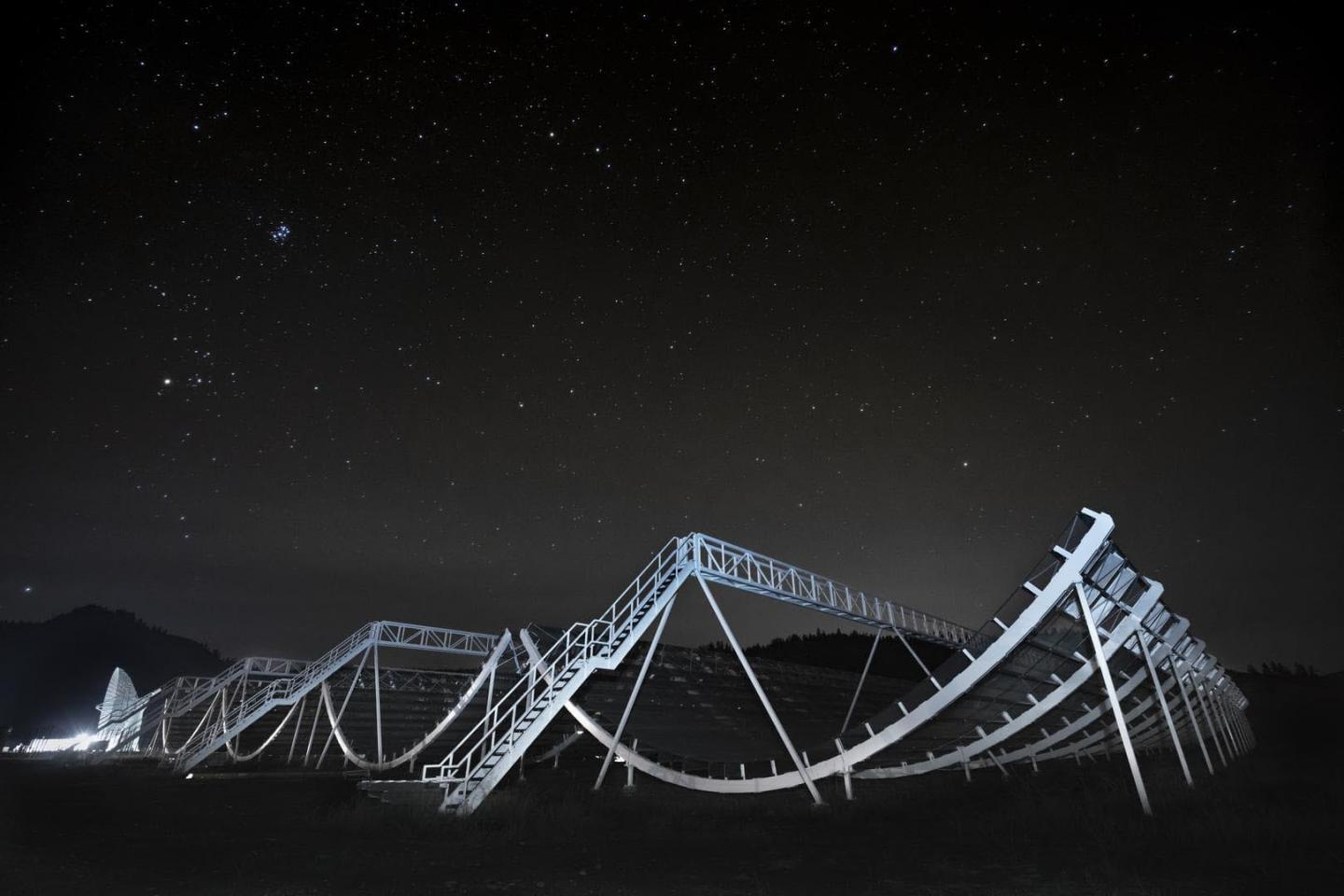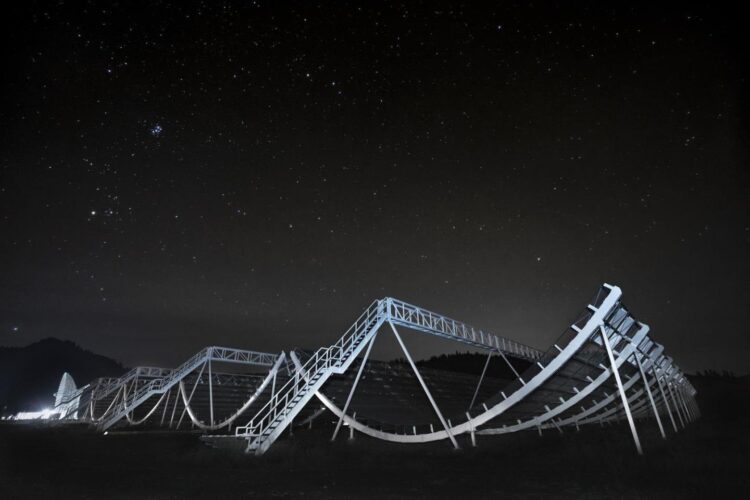
Credit: Andre Recnik/CHIME
Though it makes up roughly 70 percent of the universe, dark energy is one of the greatest cosmological discoveries that is the least understood among scientists. A new project led by West Virginia University researcher Kevin Bandura will help scientists understand the nature of dark energy by mapping out the distribution of matter throughout the universe.
“Dark energy is the name we give to the cause of the current accelerated expansion of the universe we observe,” said Bandura, of the Lane Department of Computer Science and Electrical Engineering at the Statler College. “It seems to be the base energy that is part of all space creating an outward push everywhere.”
Since dark energy was discovered nearly two decades ago, the mystery of its origin and physics have only grown more complex, with new conflicting measurements adding to the uncertainty. The three-year project for $242,000 funded by the National Science Foundation will lead to a better understanding of how our universe is evolving over time by using precise observations to study the expansion itself.
According to Bandura, older cosmological theories predicted the universe would continue to expand indefinitely, but the rate of that expansion would slow over time. In the 1990s as scientists set out to measure the rate at which the universe was decelerating, they found that the expansion was instead speeding up. They dubbed the force responsible for the acceleration as dark energy.
Using a revolutionary new telescope, the Canadian Hydrogen Intensity Mapping Experiment, to measure distant galaxies through the emission of neutral hydrogen gas that resides within them, Bandura will be able to take a measurement of dark energy.
“By measuring neutral hydrogen emissions at 21-centimeter increments coming from all of the galaxies, and the space between galaxies, you can see the universe actually evolving,” Bandura said.
Rather than looking at individual planets, Bandura explained that by looking at the universe on a large scale–as in groups of galaxies instead of individual planets or a single galaxy–the total number of emissions stemming from each group can be calculated. The neutral hydrogen measurements will then be cross correlated with optical galaxy survey data to measure the large-scale structure of the universe.
“The neutral hydrogen signal we are looking for is actually very weak,” Bandura said. “We have to look through the Milky Way, which has many other bright sources of radio emissions which are stronger than the neutral hydrogen signal we are looking for.”
In order to measure the hydrogen emission, radio signals coming from our own galaxy have to be removed. This foreground removal requires a precise understanding of the CHIME telescope.
“We can remove the radio signal from our galaxy by using a detailed understanding of both our instrument and the fact that the galactic emission is smooth in frequency,” Bandura said. “We remove the smooth signals, and what is left is the neutral hydrogen emission.”
###
The project will also develop education-oriented radio receivers that will be used in STEM programs at WVU, MIT and Yale.
Media Contact
Paige Nesbit
[email protected]
Original Source
https:/





